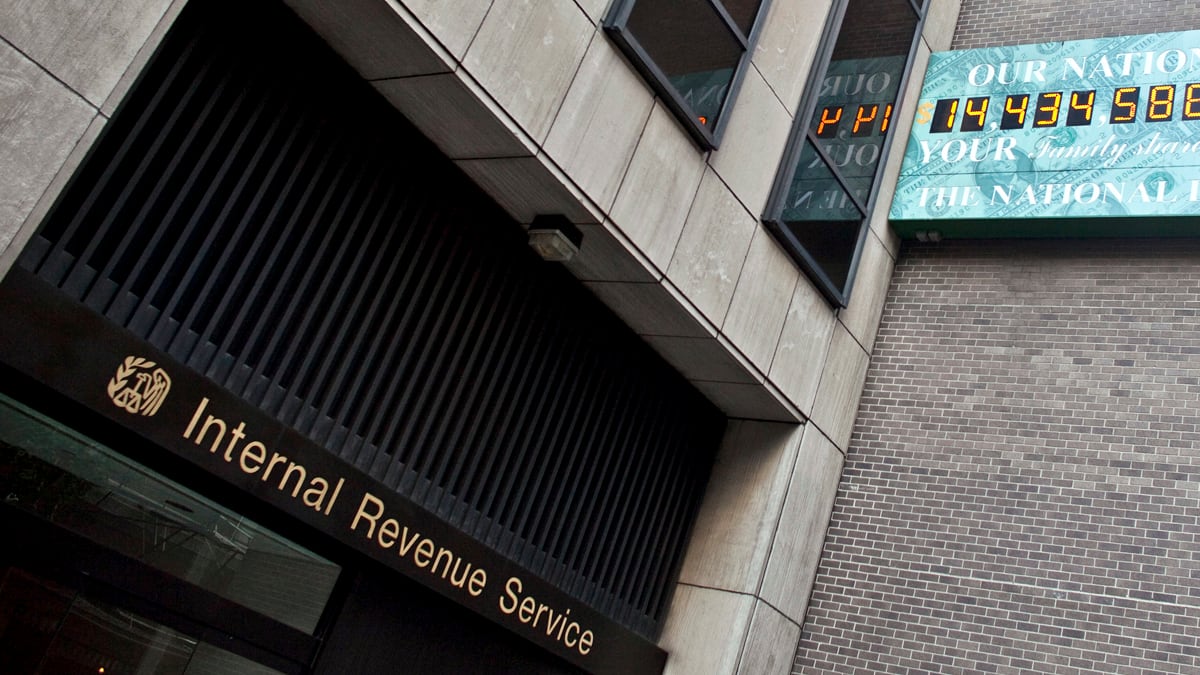It was late 2009, in the heart of the one of the nation’s worst recessions—unemployment was hovering around 10 percent, Tea Partiers were clamoring for extreme financial austerity, and the average American wanted blood (or dollars, at least) from the financial and real-estate bigwigs who were believed to have gotten us into the mess.
Into this mire waded the Internal Revenue Service, that stodgy, bureaucratic behemoth—which was in the unusual position of offering a solution. From then on, the IRS said, America’s tax collectors would go after the super-rich. They would dig in and flush out all the nooks where America’s money was hiding. The agency called its new program the Global High Wealth Industry Group.
The high-wealth group was a “game-changing strategy” for the agency, Commissioner Doug Shulman said in a January 2010 speech. In helping the IRS understand more completely how wealthy Americans manage their income and assets for tax purposes, the group represented a fundamental change in the way the IRS audited the very wealthy.
Tax professionals agreed: the wealth squad would conduct “audits from hell,” with a “new focus” on the ultra-rich.
The high-wealth auditors, which included some of the IRS’s top agents, planned to spend 2011 and 2012 investigating 171 so-called flow-through entities, in which business income “flows through” a corporation to an individual and is taxed, one time, as individual income, rather than twice. The practice is legal, but can be used to hide taxable income.
But ambitious goals soon butted up against reality. Financial restrictions slowed the initial hiring process, and nearly a year passed after the program was announced before the agency had gathered enough examiners to begin work. Half of the group’s current staff of 101 wouldn’t be brought on until the summer of 2011.

Today, a little more than a year since the high-wealth group was put into serious motion and two and a half years since the group was announced, it has completed 36 audits of around 12 to 18 high-wealth individuals, according to Syracuse University’s Transactional Records Access Clearinghouse, a statistics research organization.
Through January 2012, the group has audited 24 flow-through entities, or about 14 percent of its target nearly halfway through the planned two-year period, according to TRAC.
The program has so far recovered nearly $48 million, but the IRS won’t estimate how much it thinks might remain to be collected from high-wealth individuals. Audits on 12.5 percent of all millionaires pulled in $5.1 billion for fiscal year 2011, according to the IRS.
The agency asks for patience, and says it’s not about progress the high-wealth group has made, but about its potential.
“A better barometer for us is not the number of cases closed, it’s the number of open cases,” IRS spokesman Terry Lemons told The Daily Beast. The group has cases open on 100 individuals involving 500 returns, with audits on another 200 individuals in the pipeline, Lemons said.
Tax-return complexity is a significant hurdle. Unlike an average wage-earner’s returns, which might consist of a W-2 return and perhaps some freelance income and itemized deductions, the returns of a very wealthy individual often look more like the returns of a major international business concern.
“They may include trusts, real estate investments, royalty and licensing agreements, revenue-based or equity-sharing arrangements, private foundations, privately held companies, and partnerships and other flow-through entities that require looking at the entire, and often huge, spectrum of transactions and entities,” Shulman said in a 2009 speech.
The returns’ complexity can mean that open cases on high-wealth individuals may take years to close, Lemons said.
Another issue has been how the group defines its own parameters. What exactly does “high wealth” mean? The agency won’t give a precise number, but during his January 2010 speech, Shulman defined “high wealth” as referring to individuals with tens of millions of dollars or more in assets or income.
Assuming this rough category, how many taxpayers does it contain? Again the IRS is reluctant to give a firm number, but in 2009 more than 8,000 Americans reported income greater than $10 million.
Out of a likely pool of more than 8,000 taxpayers, then, only one to two dozen high-wealth individuals have been audited. About a third of these audits were found to be compliant, meaning the cases were closed without the legal ability to recover any additional tax revenue. (By comparison, 10 percent to 15 percent of all audits completed by the IRS are found to be compliant.)
The agency’s internal score card shows that for audits on those flow-through entities, the high-wealth group “was in the ‘red zone’ in each of its priority areas, falling far short of its audit objectives,” according to TRAC.
For TRAC, the takeaway is clear. The IRS set goals and created a stir, but the reality has not lived up to the hype. Yet even with the detailed data TRAC obtained, it’s difficult to examine the work of an agency like the IRS, which must comply with strict privacy laws.
“Transparency is a good idea in a democracy, so at least people are informed about what’s going on,” says Susan Long, TRAC’s co-director. “But it’s not easy to be the IRS. There’s always more to do than you have resources for. But here we’re just saying these were your goals—how well are you meeting your goals?”
But the IRS rejected the notion that it was falling short of goals, and said its target rates are adjusting all the time.
“Goals are arbitrary, but we’ve had staffing issues, and staffing certainly affects it,” Lemons said.
“We frequently find areas where on the surface we think something is there but when we take a closer look at it and we discover that there is not anything there, we close the case,” he added. “Keep in mind that the people filing these returns frequently have very good tax advice.”





